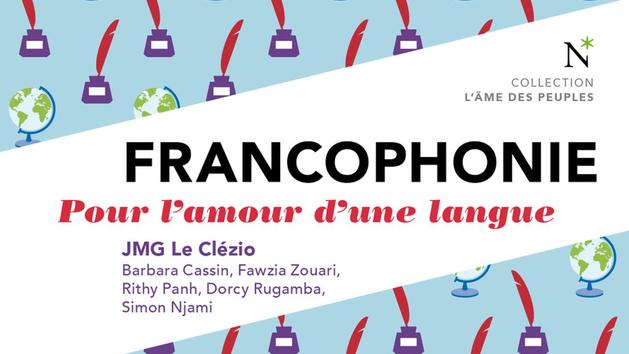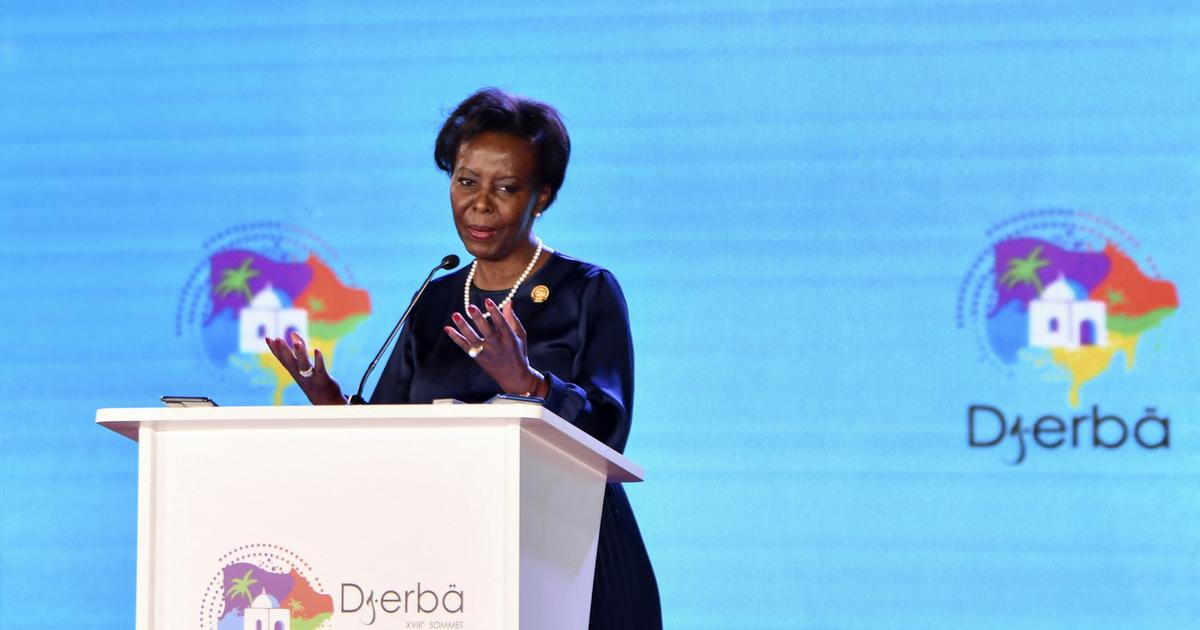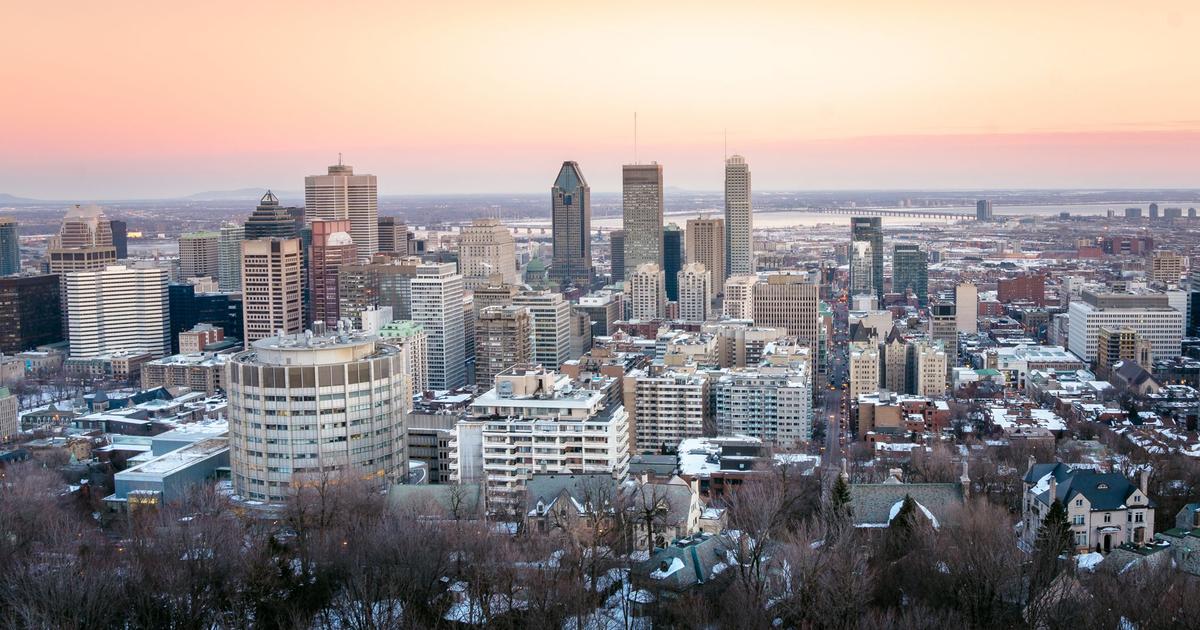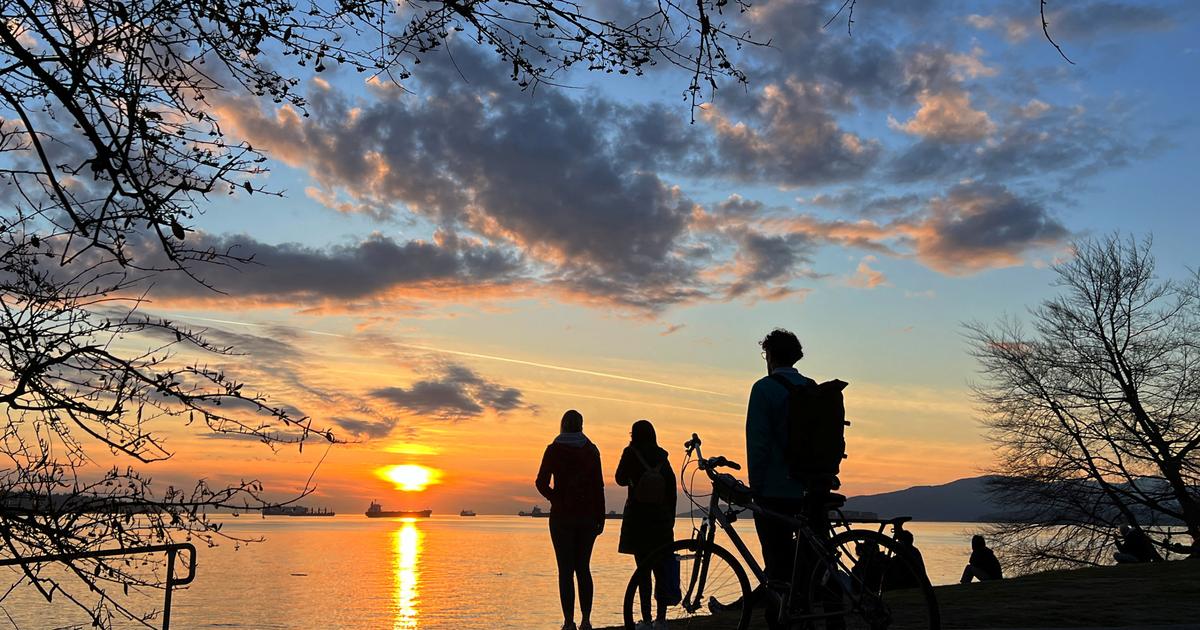With 300 million speakers on five continents, French ranks fifth among the most widely spoken languages in the world after Chinese, English, Spanish and Arabic. Molière can be proud. And even more Maryse Condé, Patrick Chamoiseau, Anna Moï, Amin Maalouf and all these great authors who "carry the French language today, with a faith and an enthusiasm which is unfortunately not always shared by intellectuals in France".
In a small book published to celebrate the 50th anniversary of the International Organization of La Francophonie, the 2008 Nobel Prize for Literature Jean-Marie Gustave Le Clézio, like Barbara Cassin, Dorcy Rugamba, Rithy Panh, Simon Njami and Fawzia Zouari, looks back on his intimate relationship with the idiom. Through his memories which join the small one with the big history, the writer declares his love for one which has "become more than a language (...) a place of exchange and meeting".
"READ ALSO - Jean Pruvost:" Let's be proud to speak French! "
In the preface to Francophonie, For the love of a language (Nevicata, The Soul of the Peoples), Louise Mushikiwabo, secretary general of the Francophonie first recalls what this word means by defining it by what it does not is not. The Francophonie "is not a country" and it "does not identify with France's past either. The ancient empires are behind us, and the 'troubled past' must give way to a community of destinies committed to the independence of nations and the freedom of individuals ”.
It is not a question of throwing it away from history. Because, as Le Clézio notes, “English, Spanish and French have become what they are thanks to the colonial empires. If English is the first language of commerce and communication, it does not owe it to Shakespeare or Dickens, it owes it to India, Africa, Australia and its American colonies. . "
A "language of refuge"
The Belgian-Rwandan author Dorcy Rugamba reminds us: "The language is the product of its history and the flow of populations." What the Franco-Tunisian writer Fawzia Zouari notes: “Yesterday, learning French was seen as liberating. Today, it is presented by some as an oppression. ” If, "languages are not innocent" as Le Clézio thinks, then the question is this: what do we want to do with them today? The author puts forward: "La Francophonie, particularly in its role of cultural moderator, undoubtedly provides an answer to this question."
This little book revolves around a question: does la Francophonie have a “soul”? For Louise Mushikiwabo, the French language belongs "to all those who claim it" . A vision shared by the Franco-Cambodian author Rithy Panh. After learning French by singing Brassens, Brel, Ferrat or even Ferré, he made him “his language of refuge”. Neither wall nor border, French is a bridge, "a generous language open to other ways of thinking."
Is this why the Hellenist Barbarin Cassin made the phrase "more than one language" his motto on his academic sword? Asked about the question of translation as a “lock in the worldwide dissemination of knowledge” , the author replies that it is a hospitality. "To translate is to put yourself in a position of listening and observation." Thus, "to translate the French language, and to translate into French, is to pay it the most beautiful, the most solemn of homage".
Globish, "a threatening defeat for English"
In fact, as the academician repeats, there is therefore not “French, but French people who make up something like the French language” . This is confirmed by Cameroonian writer and art critic Simon Njami: “French is not a mold that transforms us into speakers without individual capacity for judgment and opinion. French, on the contrary, makes us free. ” Thus, can he add "I was born in French" , as a certain Albert Camus already said in substance: "My homeland is the French language."
Throughout the pages, plural visions of French emerge. Barbara Cassin returns to inclusive writing, machine translators and Globish, which is “an especially threatening defeat for English”. For her part, Fawzia Zouari attacks "Islamist ideology and sermons in mosques" which undermine the debate on La Francophonie. Finally, Simon Njami makes Baudelaire “the ideal of the French language and spirit, through his dandyism which is was a form of rebellion”.
If the Francophonie has a soul, it has the scent of its time. Le Clézio has the perfect formula to qualify it. Let us leave the last word to him: "The French language, an old language of mixing and meeting, thanks to all its speakers, wherever they are and wherever they come from, can become a land of welcome and universality. "









